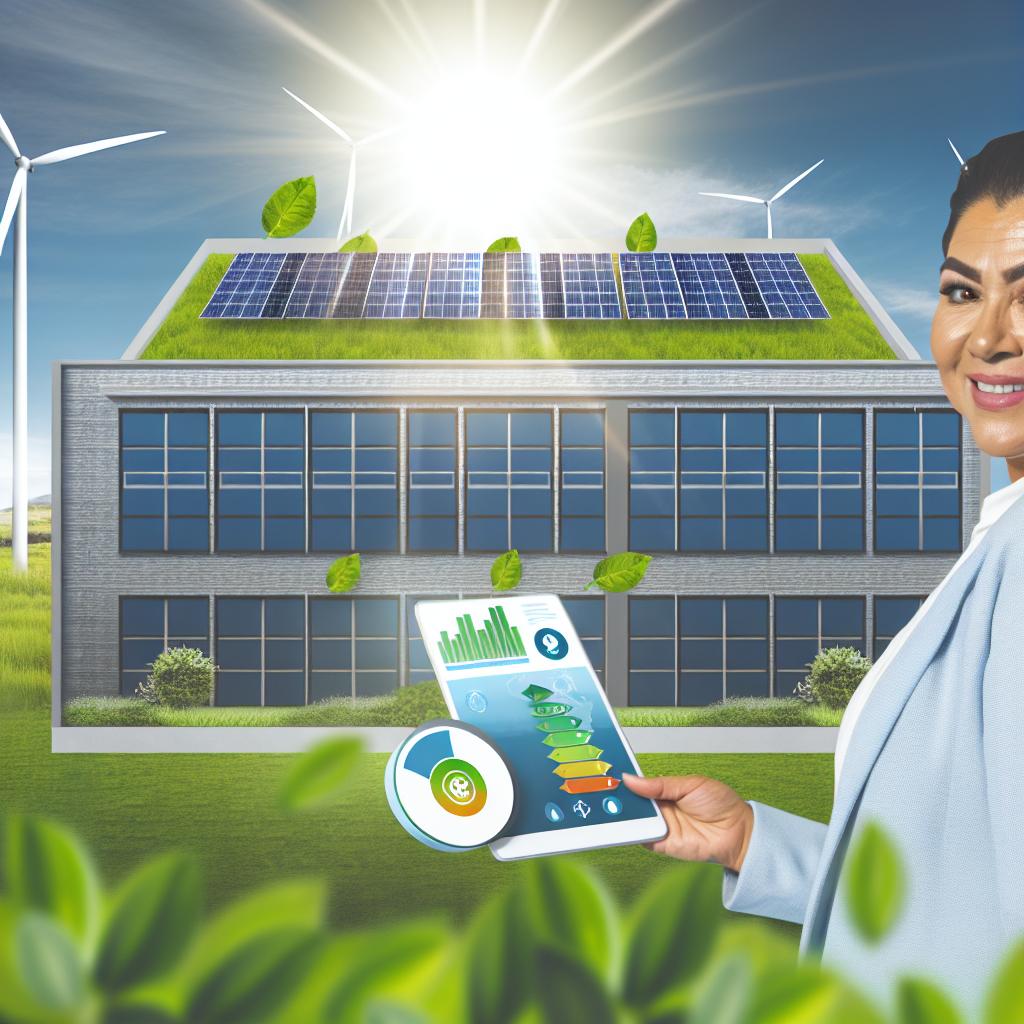
Understanding Energy Efficiency in Green Technology
Energy efficiency is a crucial component of green technology, aimed at reducing environmental impact by optimizing resource use. In essence, energy efficiency involves using less energy to perform the same tasks, thereby eliminating energy waste and reducing carbon emissions. As the global demand for energy continues to rise, incorporating energy-efficient solutions has become a necessary strategy for sustainable development.
The Role of Energy Efficiency
Energy efficiency serves several important functions in the realm of green technology:
Reduction of Carbon Footprint: By minimizing energy consumption, energy-efficient technologies help reduce carbon emissions. This is vital in the fight against climate change, as lower emissions contribute to a decrease in the concentration of greenhouse gases in the atmosphere.
Cost Savings: Implementing energy-efficient systems leads to significant cost savings for businesses and households. By reducing the amount of energy consumed, these systems lower electricity bills, allowing for a more sustainable economic model.
Resource Conservation: Energy-efficient technologies contribute to the conservation of natural resources. By utilizing energy more effectively, these technologies lessen the reliance on fossil fuels and other non-renewable resources.
Examples of Energy Efficiency in Practice
The application of energy efficiency can be seen across various sectors:
Buildings
In the building sector, energy efficiency is achieved through the use of advanced insulation materials, energy-efficient windows, and smart building management systems. These solutions help regulate temperature and minimize energy loss, making buildings more sustainable. For example, advanced insulation helps maintain a building’s internal temperature, reducing the need for heating and cooling systems that consume large amounts of energy. Modern windows are designed to maximize natural light while preventing heat loss. Additionally, smart management systems can automatically adjust lighting and climate controls based on occupancy, further reducing energy usage.
Transportation
In the transportation industry, energy efficiency is pursued through the development of fuel-efficient engines, electric vehicles, and improved public transport systems. These measures not only reduce energy consumption but also decrease air pollution. The advent of electric vehicles (EVs) represents a significant leap, as they consume less energy compared to internal combustion engines and produce zero tailpipe emissions. Enhanced public transport systems, such as high-speed trains and efficient bus networks, provide alternatives to individual car use, further reducing the overall energy footprint of transportation.
Industrial Processes
Industries implement energy efficiency by optimizing production processes, using energy-efficient machinery, and harnessing waste energy through heat recovery systems. This approach not only cuts down energy usage but can also enhance productivity. For instance, modern machinery often uses less energy to perform the same tasks as older machines, resulting in both energy savings and improved operational efficiency. Heat recovery systems capture waste heat from industrial processes and repurpose it for other uses within the facility, effectively recycling energy that would otherwise be lost.
Challenges and Opportunities
While the benefits of energy efficiency are evident, the implementation of such technologies is not without challenges. The initial investment required for upgrading systems can be a barrier for some entities. The cost of new equipment and retrofitting existing systems can be substantial. Small businesses and individuals may find these expenses daunting without financial assistance or incentives.
Additionally, there may be resistance due to a lack of awareness or understanding of the potential long-term benefits. Many people are accustomed to traditional energy systems and may not be aware of the advantages that energy-efficient technologies can provide. Informational campaigns and educational programs can help bridge this knowledge gap by demonstrating the long-term savings and environmental benefits of energy efficiency.
However, there are numerous opportunities for growth. Advancements in technology continually present new methods for enhancing energy efficiency. Innovations such as smart grids, which enable more efficient distribution and use of electricity, represent significant steps forward. Unlike traditional grids, smart grids can automatically adjust to changes in energy demand, ensuring that energy is used more efficiently across various sectors. Additionally, advancements in materials science can lead to the development of even more efficient insulation and building materials that further reduce energy consumption.
Governments and organizations around the world are offering incentives, subsidies, and policy support to encourage the adoption of energy-efficient technologies. These measures include tax credits for individuals and businesses that install energy-efficient systems, as well as grants and low-interest loans to help cover the upfront costs of adopting new technologies. Furthermore, many governments are setting ambitious energy efficiency targets, providing a regulatory framework that incentivizes companies to innovate and improve their energy usage practices.
Conclusion
Energy efficiency is a fundamental element of green technology that offers substantial environmental and economic benefits. The implementation of energy-efficient solutions is a comprehensive strategy that involves a variety of sectors, from buildings and transportation to industrial processes. While challenges such as high initial investments and lack of awareness exist, the potential for overcoming them is promising, supported by technological advancements and policy initiatives.
Embracing energy efficiency is not only a practical solution for reducing environmental impact but also an essential step toward building a sustainable future. It requires a collective effort from individuals, businesses, and governments to prioritize energy efficiency in their operations and investments. As global energy demands continue to grow, focusing on efficiency will be crucial in ensuring that these needs are met without compromising the health of our planet or the resources it provides. By making deliberate choices to adopt energy-efficient practices, we can work towards a more sustainable and environmentally responsible future.